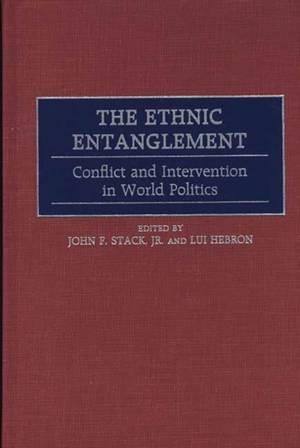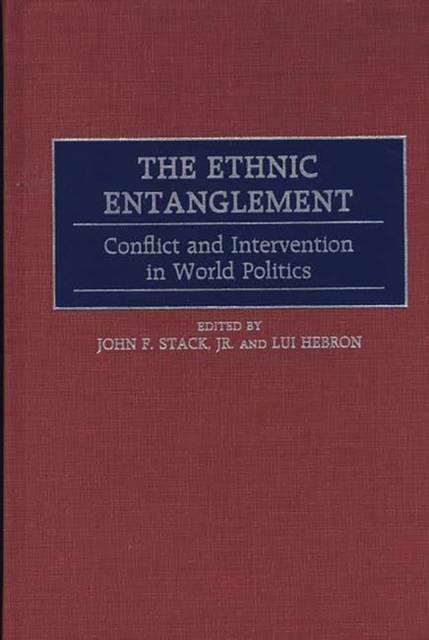
- Afhalen na 1 uur in een winkel met voorraad
- Gratis thuislevering in België vanaf € 30
- Ruim aanbod met 7 miljoen producten
- Afhalen na 1 uur in een winkel met voorraad
- Gratis thuislevering in België vanaf € 30
- Ruim aanbod met 7 miljoen producten
The Ethnic Entanglement
Conflict and Intervention in World Politics
Lui Hebron, John F. StackOmschrijving
The ongoing reconstruction of world politics following the collapse of Soviet and Eastern European variants of communism have seemingly unleashed the power of ethnicity with a vengeance. Stack, Hebron, and their contributors explore the concept of ethnicity in international relations, seeking to address this most destabilizing, yet ubiquitous dimension of the emerging new world order. As a central force in international politics, ethnicity and ethnonational movements raise two fundamental questions about the nature of power and politics in contemporary international relations. First, what is the relationship between ethnicity and conflict within, across, and among states? Second, what role does ethnicity play in exacerbating conflicts which result in the intervention by external forces, both state and nonstate, manifested by increasing levels of violence and spillover instability, as exemplified by the Middle East, the Asian Republics of the former Soviet Union, and Yugoslavia?
This book is designed to provide scholars of international relations with a compelling approach to the study of ethnicity. The study of ethnic nationalism is a growing area of scholarly inquiry not fully appreciated. Thus, this collection is designed to fill a void in the literature and, as such, will be of interest to students, scholars, and policy makers involved with issues of ethnicity and world politics.Specificaties
Betrokkenen
- Auteur(s):
- Uitgeverij:
Inhoud
- Aantal bladzijden:
- 192
- Taal:
- Engels
Eigenschappen
- Productcode (EAN):
- 9780275962227
- Verschijningsdatum:
- 30/06/1999
- Uitvoering:
- Hardcover
- Formaat:
- Genaaid
- Afmetingen:
- 162 mm x 242 mm
- Gewicht:
- 485 g

Alleen bij Standaard Boekhandel
Beoordelingen
We publiceren alleen reviews die voldoen aan de voorwaarden voor reviews. Bekijk onze voorwaarden voor reviews.











